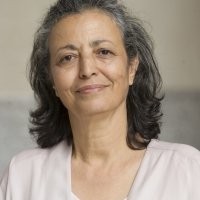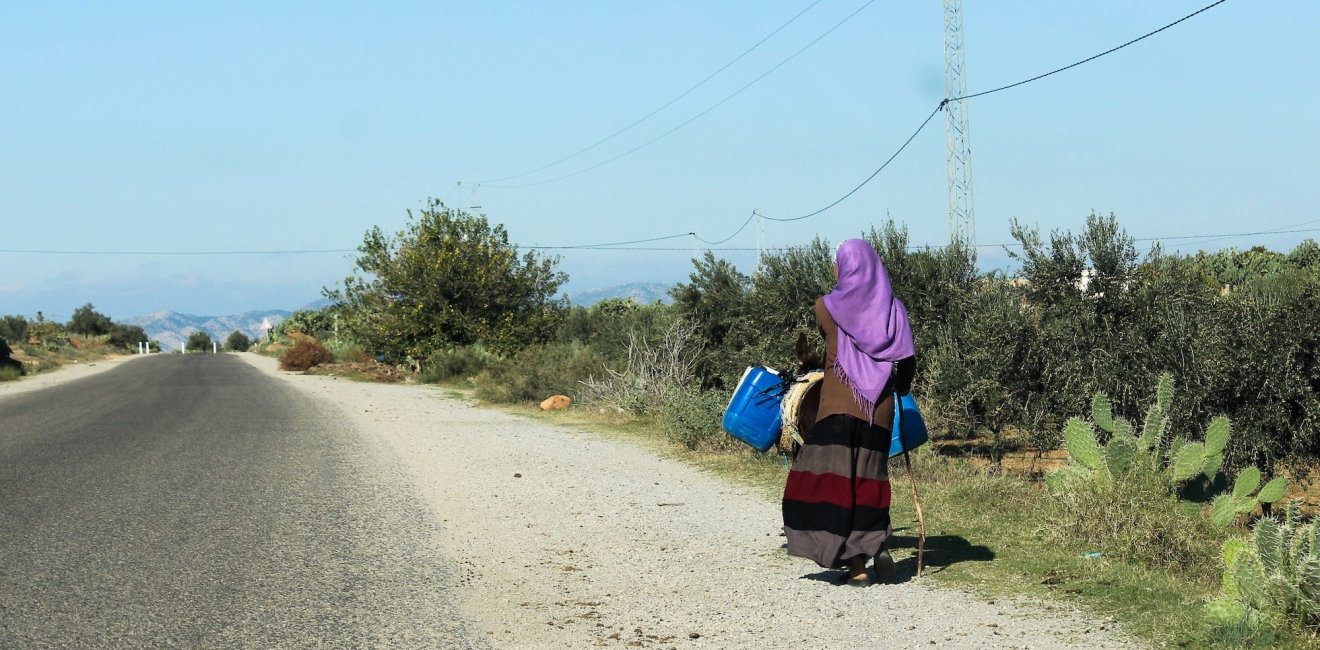
A blog of the Middle East Women's Initiative
The women we met at both centers were aware that they did not have sufficient means to promote their aims on their own and were able to articulate their own needs beyond what the state or other non-governmental organization projects had in mind for them.
Through my work in the peri-urban region of Tunis, I had the opportunity to screen documentary films that dealt with painless childbirth and the poor reception given to girls at birth, as well as addressing the issues of sexuality, contraception, and domestic violence. This experience allowed me to understand better how a number of Tunisian women aspired through marriage to benefit, side by side, from easier access to education and to receive better healthcare for themselves and their children.
The film screening on painless childbirth gave rise to a vibrant discussion among the women present. Unanimously, they recommended that I show this film as a priority to doctors and midwives who work in hospitals rather than only to them. Once they left the room, the doctor in charge of the Center accused me in these terms: “You should not show such a film to women and teach them such things.” Was he accusing me of encouraging women to discuss their experiences during childbirth? Was he disturbed by the discussion among the women who clearly expressed how maternity services were sites for the reproduction of political and patriarchal power (Labidi, 1989)?
Many women I have interacted with through my work, including the women at the film screening, have experienced various waves of engagement, opportunity, and challenge in the past several decades. Emancipation through vocational training was the preferred strategy of women of the generation of the 1980s and 1990s. Many went later to coastal towns in search of work in the textile or tourism sectors. Others, with greater educational capital, chose training schools in the state or private paramedical professions sector. Once qualified, they worked in private clinics, which were in number in the cities, to acquire the professional experience needed to work in France, Canada, Germany, and the Gulf countries, where such qualified women were in high demand.
The women who came out to demonstrate in the streets of rural regions in December 2010 and January 2011, when the “Arab Spring"started, know that they contributed to the fall of Ben Ali's authoritarian regime. In experiences interacting with these women, we could detect during the discussions that they were thinking of strategies other than those proposed by state and national organizations like the UNFT (Labidi, 2012). A visit to the country's northwest region allowed me to see that women were making relevant analyses of their conditions. Benefitting from schooling, they were informed of what was happening in Tunisia, Algeria, and Europe.
During a brief visit to a women's Center, we were able to see some literacy lesson sheets and some embroidery work, obviously done by beginners. These sessions took place once a week; this Center’s discussion began with the women who came running when they noticed a crowd around the Center, saying they did not understand why we wanted to teach them embroidery when they knew how to weave kachabias, a traditional coat for men. Their knowledge and skills are passed down from mother to daughter, and these kachabias can easily be sold at the local market, where such clothing is in great demand in the region. The women we met communicated their desire for assistance in obtaining the materials for weaving such a product.
A visit to another training center for rural girls located a few dozen kilometers from the capital was closed when we arrived. The Center’s room contained rows of tables and chairs, a blackboard, and literacy work hanging on the walls. While there, I met a young woman, and she shared her grievances and those of the girls of her generation. She expressed their desire to access a computer and the internet, which would allow them to develop new skills. The women we met at both centers were aware that they did not have sufficient means to promote their aims on their own and were able to articulate their own needs beyond what the state or other non-governmental organization projects had in mind for them.
Visits, field surveys, and discussions with women living in rural areas helped us understand their needs and listen to their expectations. It also guided us in 2011 towards implementing some projects where women became active agents in crafting the futures and opportunities they saw for themselves. At the same time, a seminar on solidarity and social economy was organized, giving rise to a discussion with the various stakeholders in the field. Conclusions from this seminar were sent to the Ministry of State Lands in the form of a request to help provide land to experiment with the creation of a women's agricultural cooperative. This aimed to enable women to identify, tackle, and solve challenges with the necessary resources and technical assistance.
After January 2011, women were looking for something else: to have their full humanity recognized within the ethics of human rights and their freedom as actors to choose. It is not surprising that unionism is today their new strategy. Just like agricultural workers in Egypt, the women of Jbeniana have shown the way to their current strategy.
Works Cited
Lilia Labidi. Çabra Hachma: sexualité et tradition. Tunis: Dar Ennawras. 1989.
Lilia Labidi. Tunisia: Policies and Practices for Promoting Social Justice for Rural Women during a Democratic Transition In Is the Arab Awakening Marginalizing Women? 2012, Pp. 23-27.
The views expressed in these articles are those of the author and do not reflect an official position of the Wilson Center.
Author

Visiting Research Professor, Middle East Institute, National University of Singapore; Former Minister for Women’s Affairs (January to December 2011), Government of Tunisia

Middle East Program
The Wilson Center’s Middle East Program serves as a crucial resource for the policymaking community and beyond, providing analyses and research that helps inform US foreign policymaking, stimulates public debate, and expands knowledge about issues in the wider Middle East and North Africa (MENA) region. Read more

Explore More in Enheduanna
Browse Enheduanna
Women are the Catalysts for Change in Lebanon

How Education Can Empower Young Women in MENA


